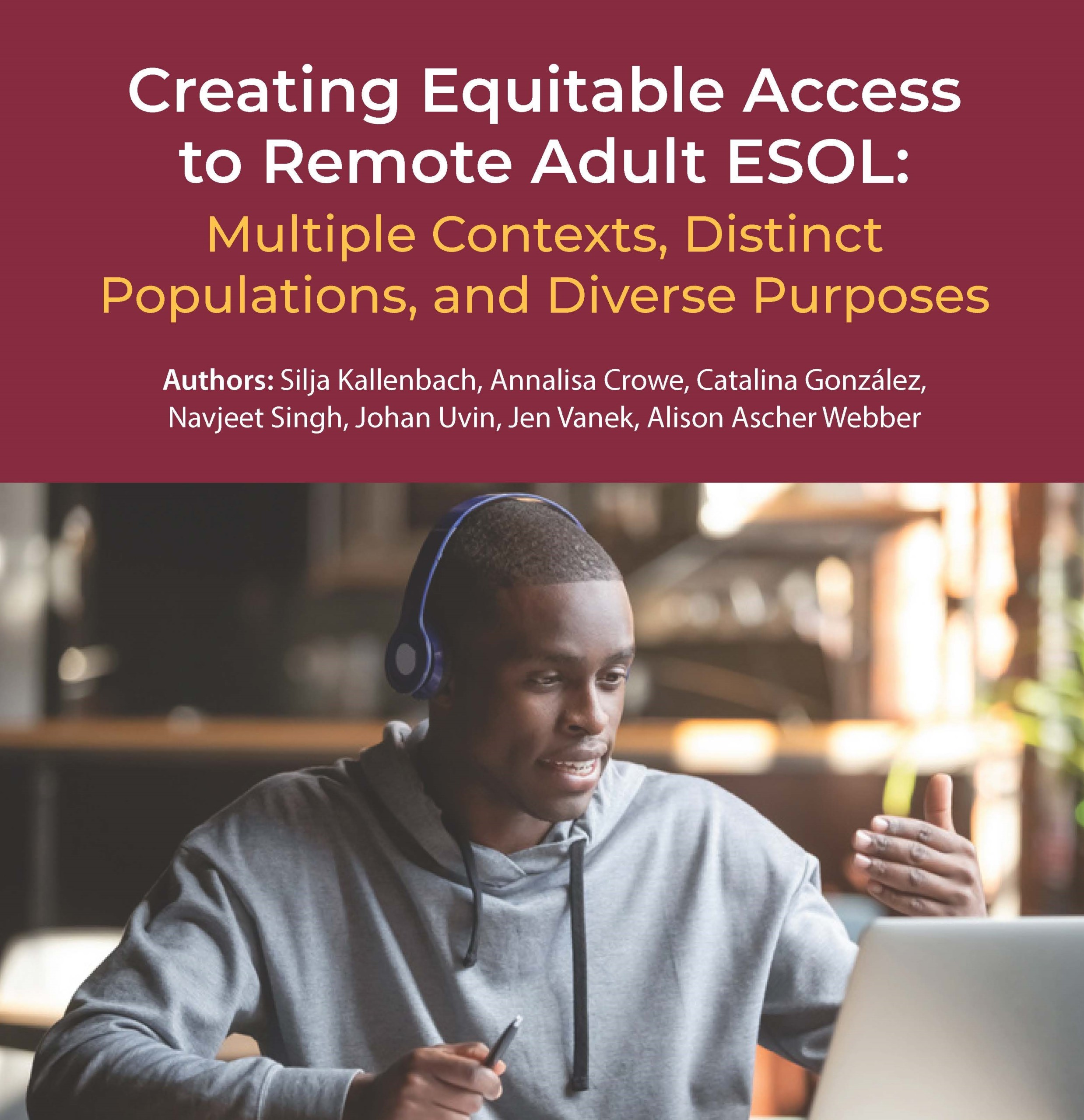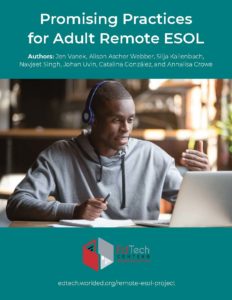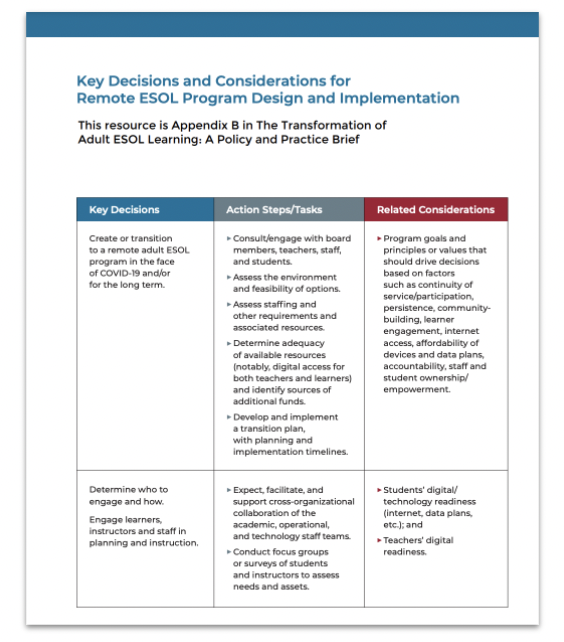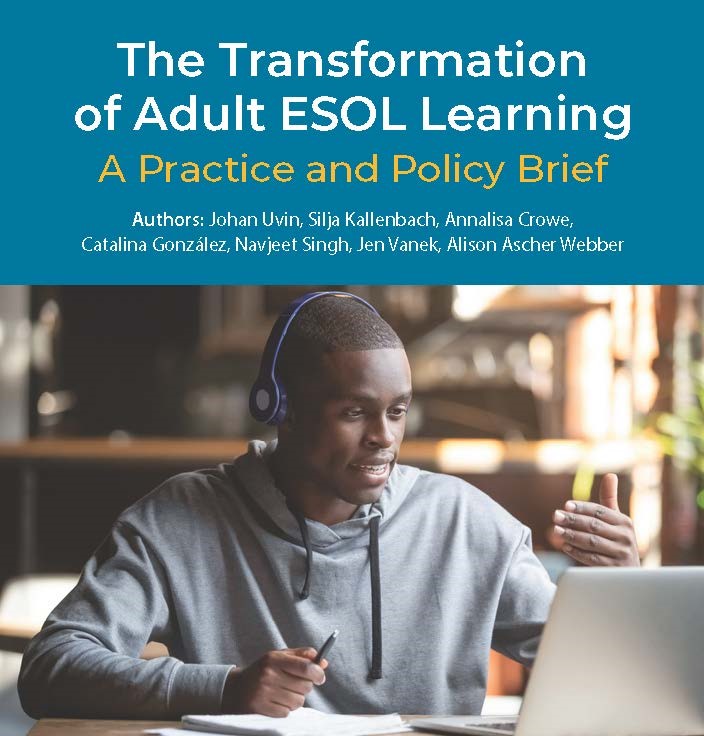Effective Practice and Policy in Remote ESOL
Our research pointed to notable program designs, strategies, instructional approaches, and resources, across multiple organizations. We captured many of these strong practices in the papers here.
Creating Equitable Access to Remote Adult ESOL
 Innovations to support diverse learners.
Innovations to support diverse learners.
This brief report presents a description of innovative efforts uncovered as we interviewed leaders from 34 adult ESOL programs across the US. The ideas and resources described are notable because of the use of digital technologies to provide onboarding, instruction and support to diverse groups of ESOL learners that programs sometimes struggle to serve. We also share descriptions of remote ESOL instruction in multiple contexts.
Promising Practices for Adult Remote ESOL
 Focus areas for promising practices.
Focus areas for promising practices.
This resource highlights strategies and resources that are key to supporting remote ESOL learner success:
- Student Recruitment and Onboarding
- Instructional Platforms, Materials, and Approaches
- Student Persistence Strategies
- Student Access to Digital Skills, Devices and Internet
- Support for Students’ Basic Needs
- Professional Development and Support for Staff
Partnerships
This resource highlights scalable innovations within each area. Access the resource here.
Key Decisions for Remote ESOL Program Design and Implementation
 What needs to be in place to scale innovation? Though the context for each site we explored varied, we noticed similarities in the questions that programs needed to address in order to start up or scale up remote ESOL instruction. The resource lists key areas for decision making and then provides examples of action steps and considerations that support making those decisions.
What needs to be in place to scale innovation? Though the context for each site we explored varied, we noticed similarities in the questions that programs needed to address in order to start up or scale up remote ESOL instruction. The resource lists key areas for decision making and then provides examples of action steps and considerations that support making those decisions.
The Transformation of Adult ESOL Learning – A Practice and Policy Brief
 This brief first sets the stage for understanding policy and practice recommendations by describing the context of adult ESOL delivery and providing a summary of the descriptive research project. The brief then highlights key findings and innovative practices and models, names and discusses facilitating conditions, identifies areas where more research is needed, and offers policy recommendations that can facilitate scaling up effective remote instructional models for English language learning.
This brief first sets the stage for understanding policy and practice recommendations by describing the context of adult ESOL delivery and providing a summary of the descriptive research project. The brief then highlights key findings and innovative practices and models, names and discusses facilitating conditions, identifies areas where more research is needed, and offers policy recommendations that can facilitate scaling up effective remote instructional models for English language learning.
The Transformation of Adult ESOL Learning – Executive Summary
The Transformation of Adult ESOL Learning – A Practice and Policy Brief
